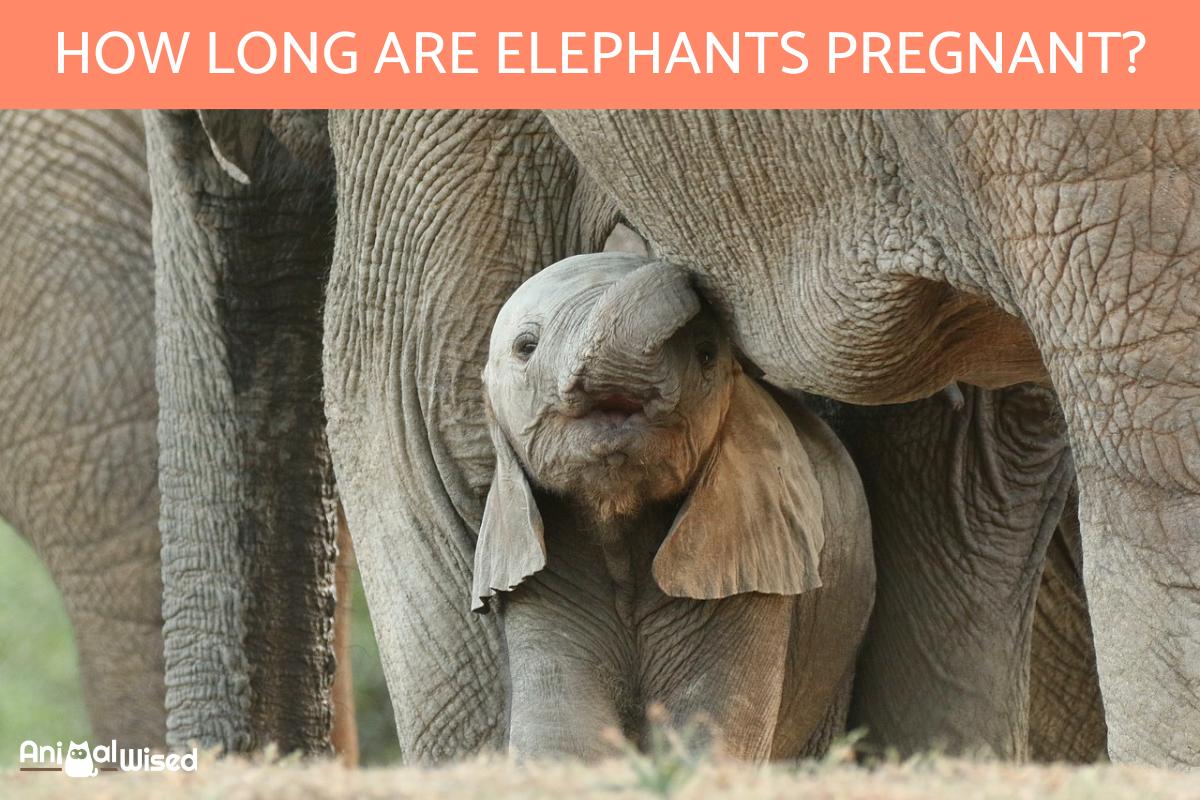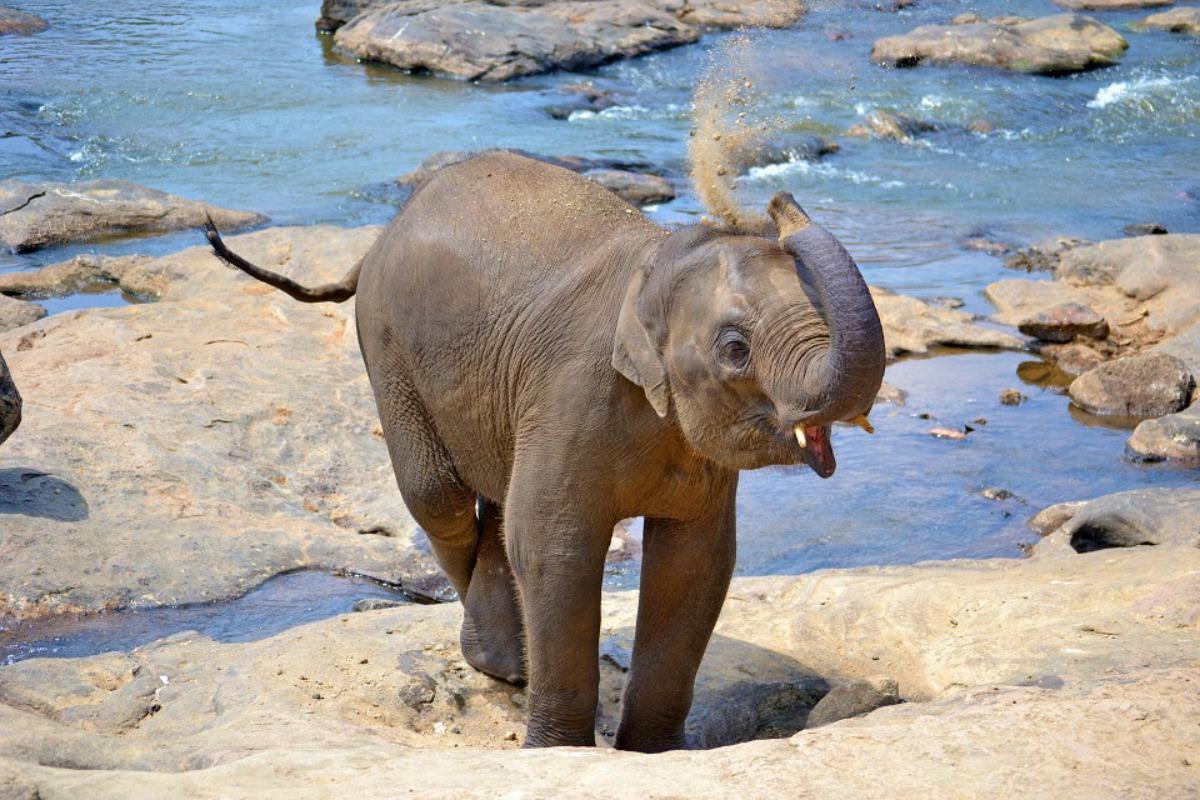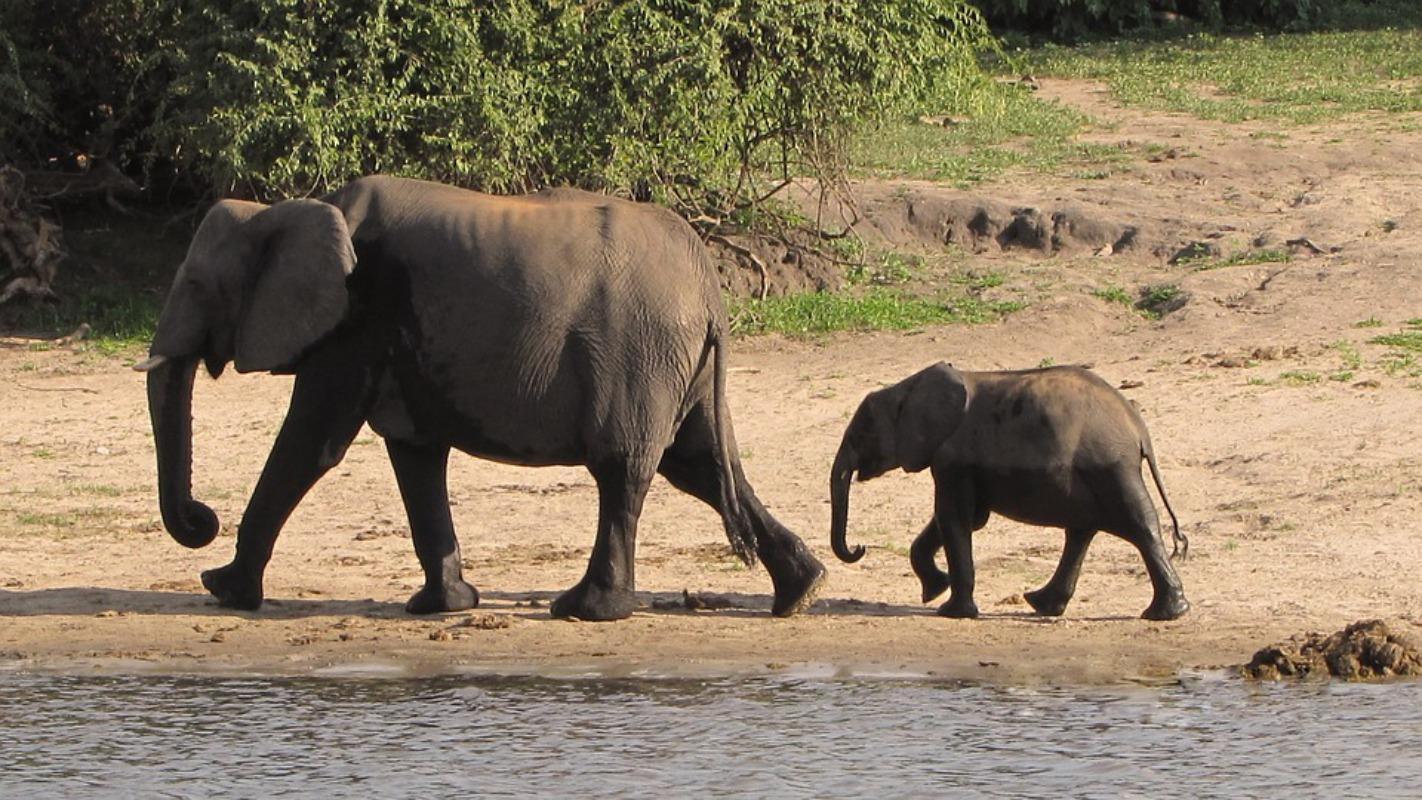How Long Is an Elephant's Pregnancy?

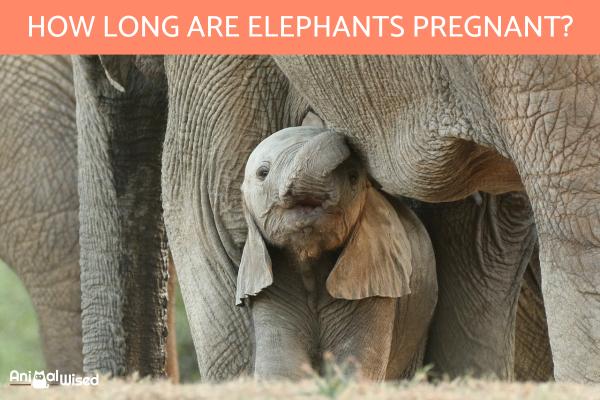
Not only are elephants the largest land mammal in the world, but they are incredibly intelligent. Relatives of wooly mammoths that became extinct 3,700 years ago, there are two current extant species. These are the African elephant (Loxodonta africana) and the Asian elephant (Elephas maximus). For such large creatures, they have equally large offspring known as calves. Although they may be large once they are born, they begin as two microscopic cells, as do all animals. Since a lot of development is required between fertilization and birth, we want to know how long is an elephant's pregnancy?
At AnimalWised, we answer this question by finding out the details of the gestational period of elephants. This requires us to look a little at the reproduction of elephants and what that says about them as animals.
Elephant fertilization
As a large mammal, elephants are relatively complex animals. Like all mammals, this requires them to reproduce sexually. As with most, but not all, mammals, they also have an estrus cycle. In fact, elephants appear to have the longest estrus cycle of all non-seasonal mammals[1]. They will begin this cycle when they reach puberty at about 10-12 years of age and can become pregnant between 14-16 years of age.
The mating structure of elephants is also very fascinating. Elephant estrus cycles last between 3 to 4 months, meaning they can be fertilized between 3 to 4 times out of a year. When females enter their estrus cycle, they release pheromones to attract a mate. She does so through vaginal secretions and urine marking.
Males will smell the air and other parts of the habitat to track females using their Jacobson's (vomeronasal) organ to interpret the scents. This is necessary because females will run from males who are trying to pursue them. Males will also flap their ears to spread their own pheromones to give them a better chance of copulation with the female.
During the female's estrus cycles, males can become very aggressive. They will fight for the right to copulate and younger elephants have little chance against more dominant older bulls. The oldest males between 40 to 50 years of age are most likely to mate. Males are polgynous breeders, meaning males can mate with multiple females, but each female only mates with one male. Males will even guard females during their estrus cycle to prevent other males from copulating.
Males can enter a period known as musth. During this time, their testosterone levels are as much as 140 times higher than their usual rate. This can make them very dangerous as the elephant will become very aggressive. It is even possible the male will fight a female rather than mount her due to their overstimulation. They also release a peptide from a gland on their head known as temporin.
Typically, males will mount females once daily for 3 to 4 days in order to reproduce. Males will wrap their trunk across the back of the female and thrust. Their penis is so mobile, it can thrust in and out of the elephant's vagina without the male having to move their pelvis. Ejaculation usually occurs in under a minute, after which time the sperm has to travel almost 7 ft to reach the eggs in the female's uterus.
Once successful fertilization has taken place, the female elephant will become pregnant and start the gestation period. Females tend to become less fertile after the age of 50 years, but can still reproduce up to the age of 65 years. They are also one of the few animal species to have a relatively long lifespan during their post-reproductive period, something that is only usually seen in primates and humans[2].
As we learn more about the habits of elephants with our article on how long elephants live.
The gestation period of elephants
An elephant's pregnancy and gestation can last approximately 22 months. This is the longest process of all mammals and one of the longest in the animal kingdom. While this is true for both types of elephant, there is a slight discrepancy between the two elephant species:
- African elephant gestation: 640-673 days
- Asian elephant gestation: 623-729 days[3]
If you were wondering whether African or Asian elephants have a longer gestation period, this should serve as a guide. There are several reasons why both types of elephant have such a long gestation period. One of the most important is size. Even when they are a fetus, elephants are very large animals. For such a large animal to develop, it takes time.
Owing to their size, the development of the elephant's pregnancy is slower. The pregnancy is a slow one due to the amount of development which will take place. Pregnancy in elephants is maintained by several ovarian hormones, which are secreted by organs known as corpora lutea. At birth, they can weigh around 260 lb and measure around 33" in height.
The long duration of an elepant's pregnancy also allows for proper development of the elephant's brain. This is very important, since they are highly intelligent animals, and this intelligence allows them to feed themselves using their long trunks. This cerebral development also allows the elephant to survive from the moment it is born.
Generally, elephants only give birth to one calf at a time, although it is possible in rare cases for them to have twins. Once they are born, they are precocial, meaning they are almost fully developed and can move about normally. The baby elephant is looked after by the entire herd. This includes other calves up to 13 years of age in a process known as alloparenting. The weaning period occurs after about 3 months of age.
You may also be interested in reading our related article on whether all elephants have tusks.
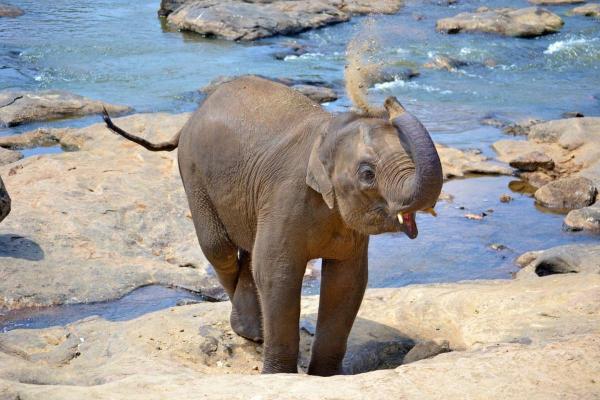
Interesting facts about elephant pregnancy
There are some interesting facts with regard to elephant pregnancy, such as:
- Elephants can be artificially inseminated to become pregnant, something which requires invasive methods due to the distance it takes to reach the uterus.
- Elephants have an original hormonal process that is not currently evident in other species.
- The gestation period of an elephant is over ten months longer than that of the blue whale, which has a period of one year.
- Elephants cannot see immediately after birth and are practically blind. They need to follow their mothers by holding on to their tail with their trunk, a behavior they continue even after they develop their sight after a few days.
- The interval between each birth is approximately 4 to 5 years, meaning elephants can give birth up to around 12 times in a lifetime.
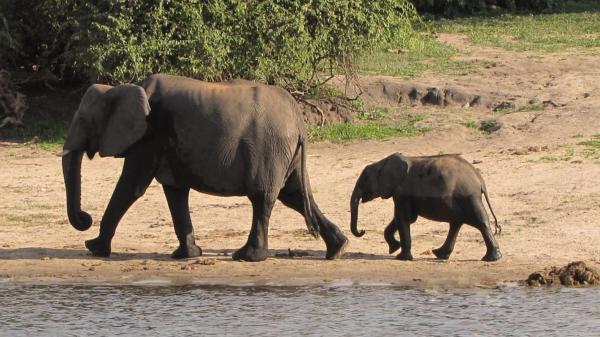
Long gestational periods in nature
The elephant might is the land mammal with the longest gestation period, with sperm whales, black rhinos and walruses coming closely behind. However, there is one animal that surpasses them all. The frilled shark (Chlamydoselachus anguineus) is a fish which can be 2 meters (6'6'') in length. They live at quite low depths and looks a bit like an eel. The frilled shark keeps her embryos which develop for up to 3 and a half years.
As you can see, an elephant is pregnant for a long time due to the size of her unborn calf. Find out what other animals have such large sizes in our video we share below.

If you want to read similar articles to How Long Is an Elephant's Pregnancy?, we recommend you visit our Facts about the animal kingdom category.
1. Hildebrandt, T. B., Lueders, I., Hermes, R., Goeritz, F., & Saragusty, J. (2011). Reproductive cycle of the elephant. Animal reproduction science, 124(3-4), 176–183.
https://doi.org/10.1016/j.anireprosci.2010.08.027
2. Lahdenperä, M., Mar, K. U., & Lummaa, V. (2014). Reproductive cessation and post-reproductive lifespan in Asian elephants and pre-industrial humans. Frontiers in zoology, 11, 54.
https://doi.org/10.1186/s12983-014-0054-0
3. Hildebrandt, T., Drews, B., Gaeth, A. P., Goeritz, F., Hermes, R., Schmitt, D., Gray, C., Rich, P., Streich, W. J., Short, R. V., & Renfree, M. B. (2007). Foetal age determination and development in elephants. Proceedings of the Royal Society B: Biological Sciences, 274(1608), 323–331.
https://doi.org/10.1098/rspb.2006.3738






